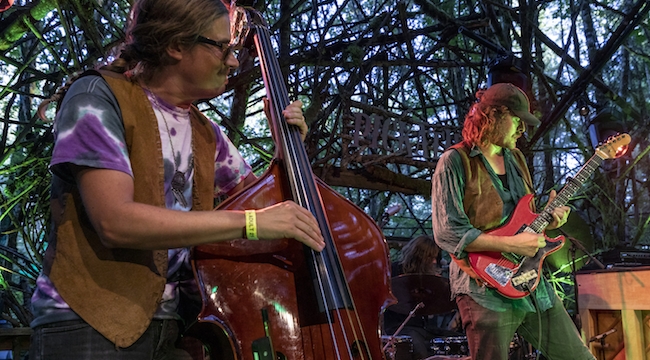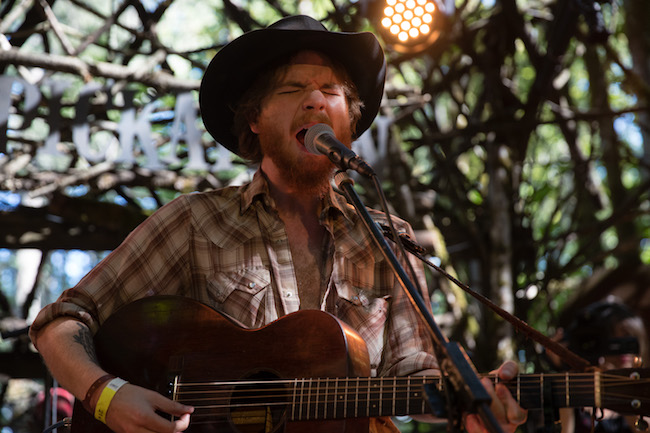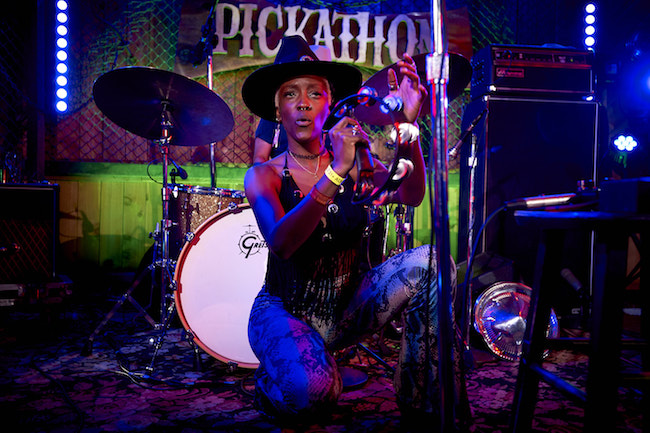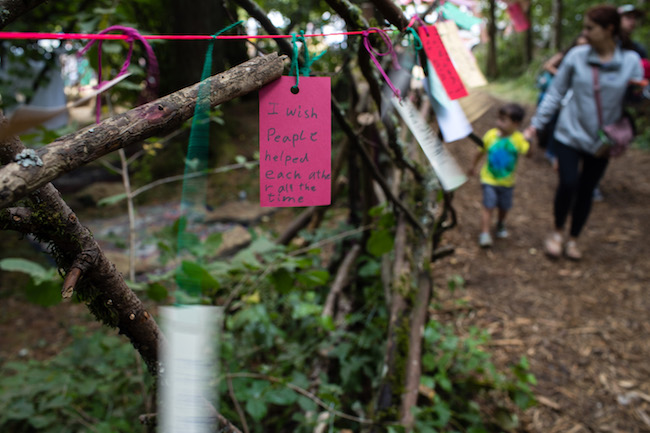
In a small, tucked away corner of Portland’s east side suburbs — Clackamas, to be exact — one of the most revolutionary music festivals in the country has been quietly trucking along for two decades. Even though it was the 20th anniversary of Pickathon this year, that milestone wasn’t the main focus of the festival. Sure, it was mentioned in passing by a couple of the bands and staff members throughout the weekend, but there wasn’t anything in the overt language of the fest this year that pointed back to themselves. That’s because, to Pickathon, the story is in the music. It’s always in the music.
As one of the few fests in the country that focuses almost exclusively on folk, country, and roots-oriented artists, the emphasis on artists themselves feels like a claim being staked. And, in many ways, it’s this style of music that draws the family-centric crowd to come camp at the fest, year in and year out. When you’re at Pickathon, it feels like there are campers sprawled across every corner of Pendarvis Farm. I saw more babies per capita at this fest than any I’ve ever been to, and I go to a lot of music festivals!
The renewed emphasis on songs and songwriters in a world of overtly branded, sprawling corporate fests felt like a breath of fresh air — and the Oregon sunshine didn’t hurt either. After attending Pickathon for the first time this year, I easily consider it to be one of the most idyllic and inventive festivals in the country. Whether that’s best exemplified in the small, almost impossible to get into sessions hosted by a moderator at the Lucky Barn stage, where seasoned experts pepper artists with questions between sets to get their backstory, or via the fact that nearly every single artist booked for the event played at least two sets over the course of the four days is a toss-up.

Aside from the sprawling main stage, aka the Mt. Hood Stage, there was the Starlight Stage, just a bit up the hill, that kicked off with late night sets right after the main acts finished out their normal headlining time slot. Further into the property, the secluded, widely-acclaimed Woods Stage featured sets that took place, unsurprisingly, in the middle of the forest, with a background of wrangled saplings forming a breath-taking framing behind the artist. Add in another enclosed venue, the Galaxy Barn, and the woodsy Treeline Stage, and the options during the weekend were almost overwhelming.
And even with so much music at the center of the event, there were plenty of other elements that made Pickathon stand out from the slew of annual summer weekends of packed lineups that now saturate the globe. Their system for reducing single-use plastic is one that could easily be implemented at festivals the world over, and for the sake of our planet, should be. Though it was a little tricky to get the hang of it at first, as soon as you’re in the system is completely logical.

First, you purchase a token for $10 at a booth in the food court. This token is a stand-in for your bowl or plate and a reusable wooden fork whenever you order a food item. When you order, you pay for your food and give the token to the vendor, who gives you your meal in the bowl, made of a mix of bamboo pulp and resin. When you’re done eating, you drop the dirty bowl and fork at a dishwashing station, where you’re given a token in return for the dishes. This solution also stretched to drinks, and reusable, insulated cups were available for purchase for $6 all around the event.
My cup held everything from rosé to iced coffee to kombucha, with a quick wash in between, and I was proud to be one of the many hundreds of guests who didn’t use a single piece of plastic all weekend. It was actually refreshing to see just how easy and simple it could be to make a change like this, and to watch a whole community of people embrace it as well. Pickathon offered a glimpse into this other world, one where washing a bowl was prioritized over making a buck, and the brightest moments were small simple ones, like Colter Wall singing ringed by trees, Jamila Woods doing a late night set on the Starlight stage, or Phosphorescent debuting brand new songs on the main stage. Whatever else happened, the quiet, hushed reverence that audience members of all ages reserved for moments like these is not something I’ll soon forget.

Pickathon provided accommodations for Uproxx during the festival. You can read our press trip policy here.






